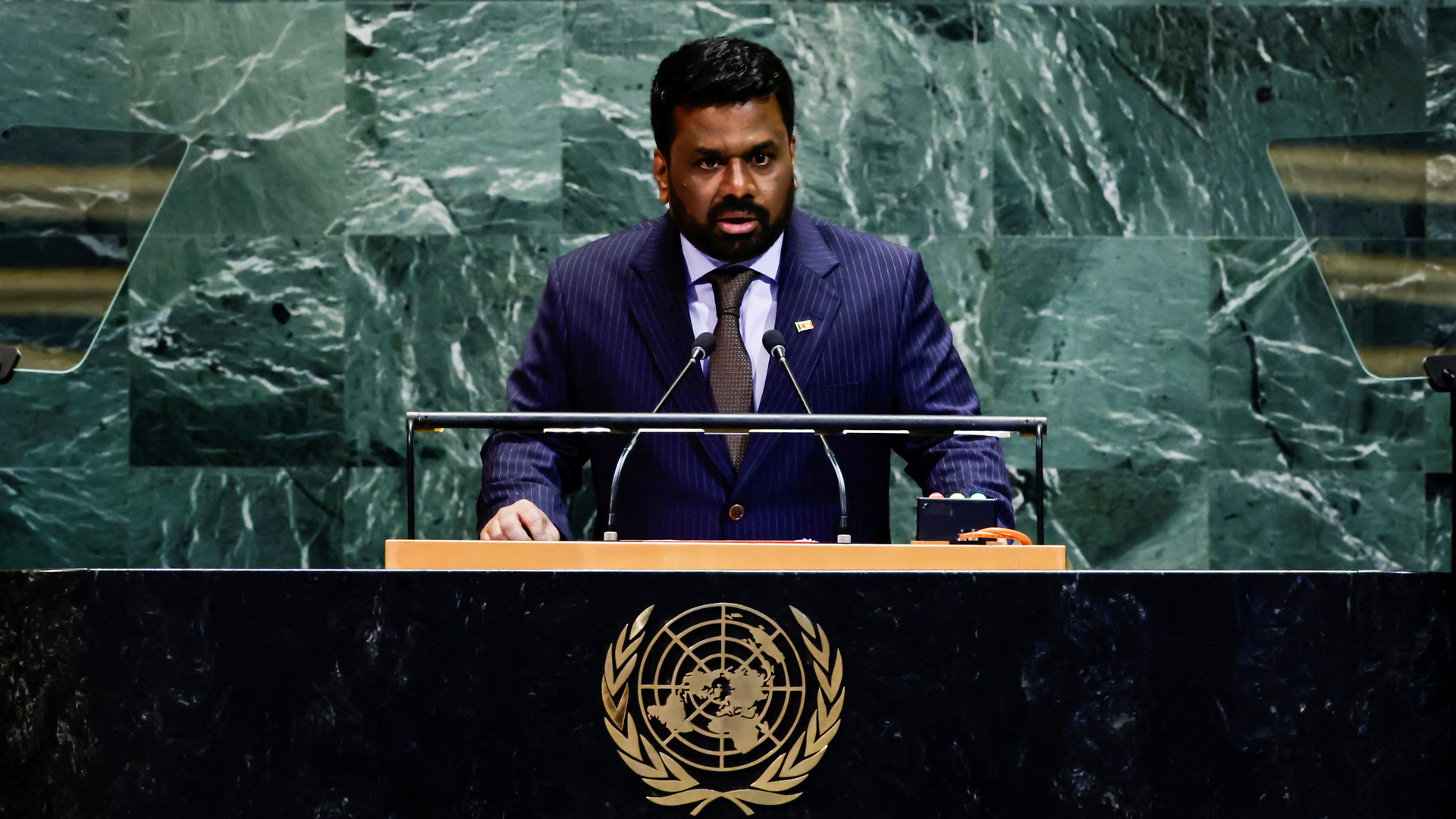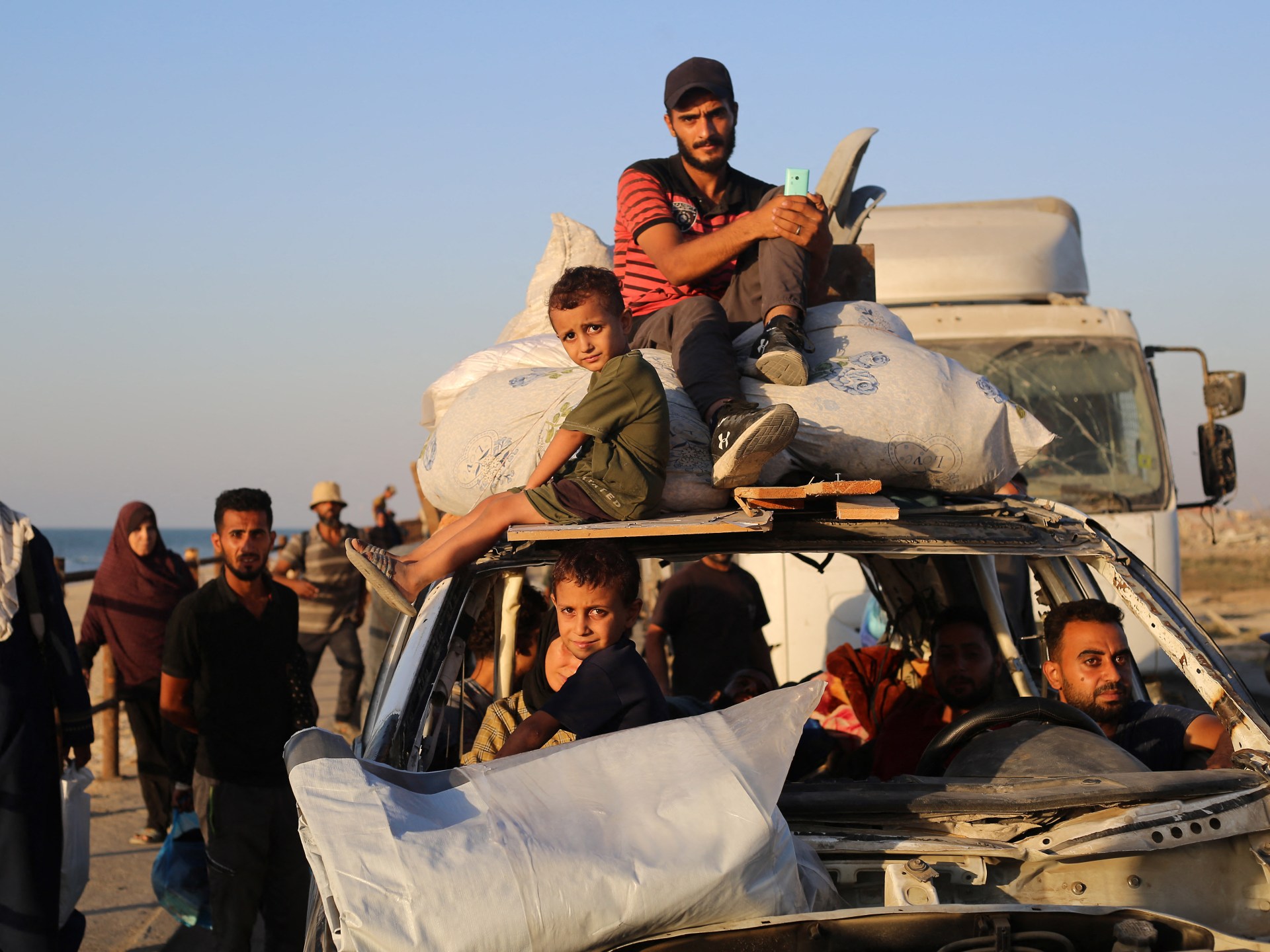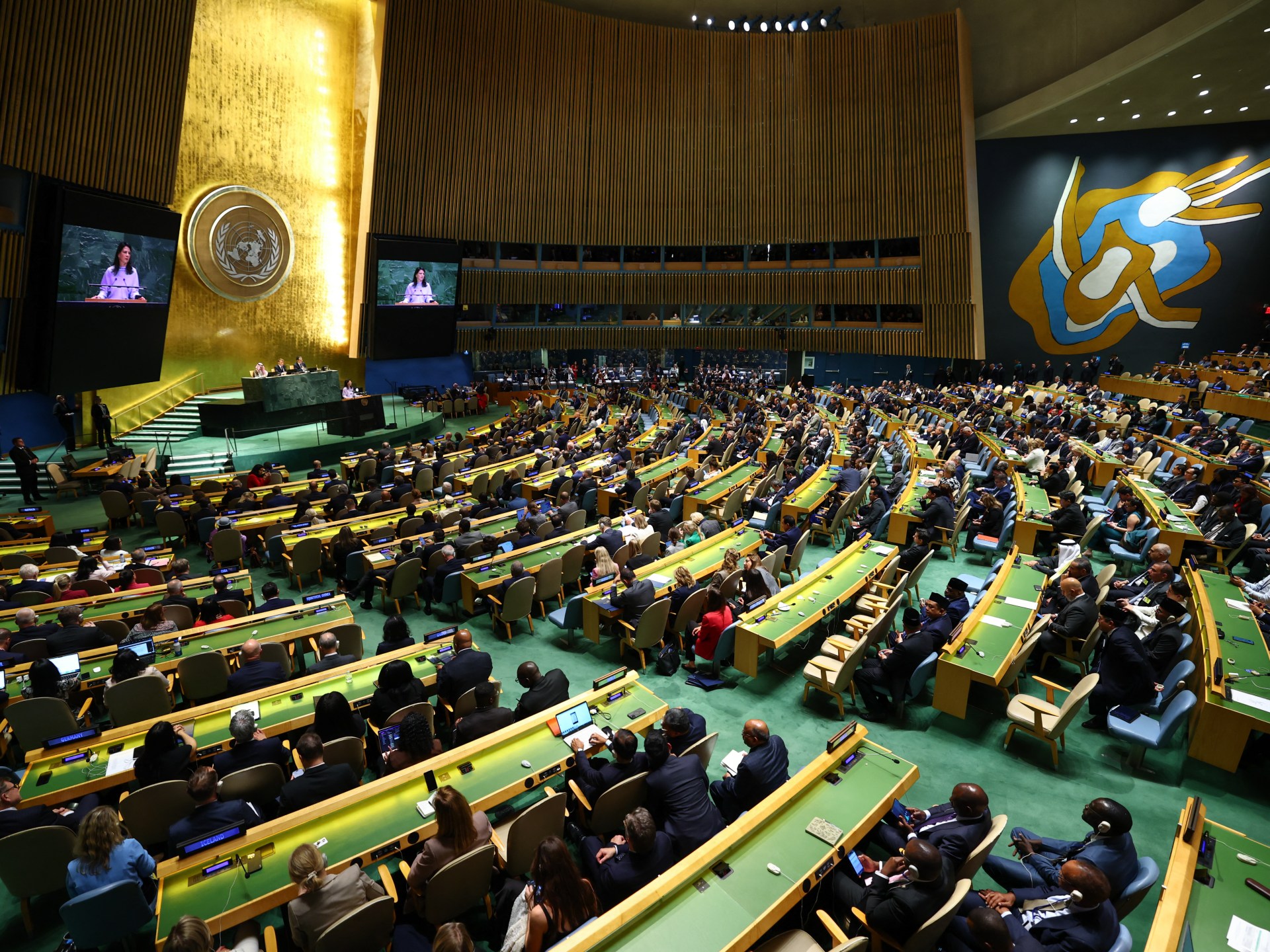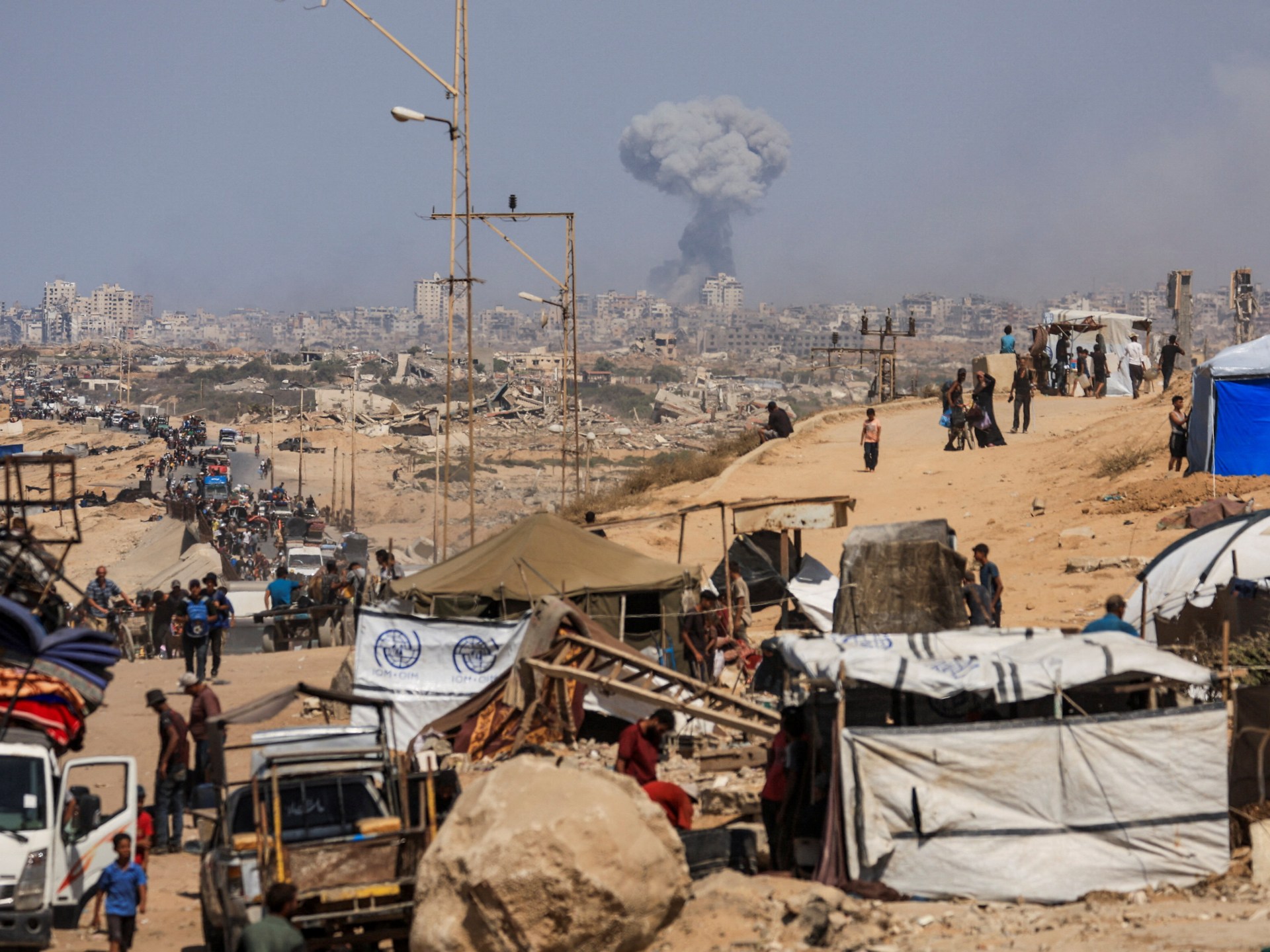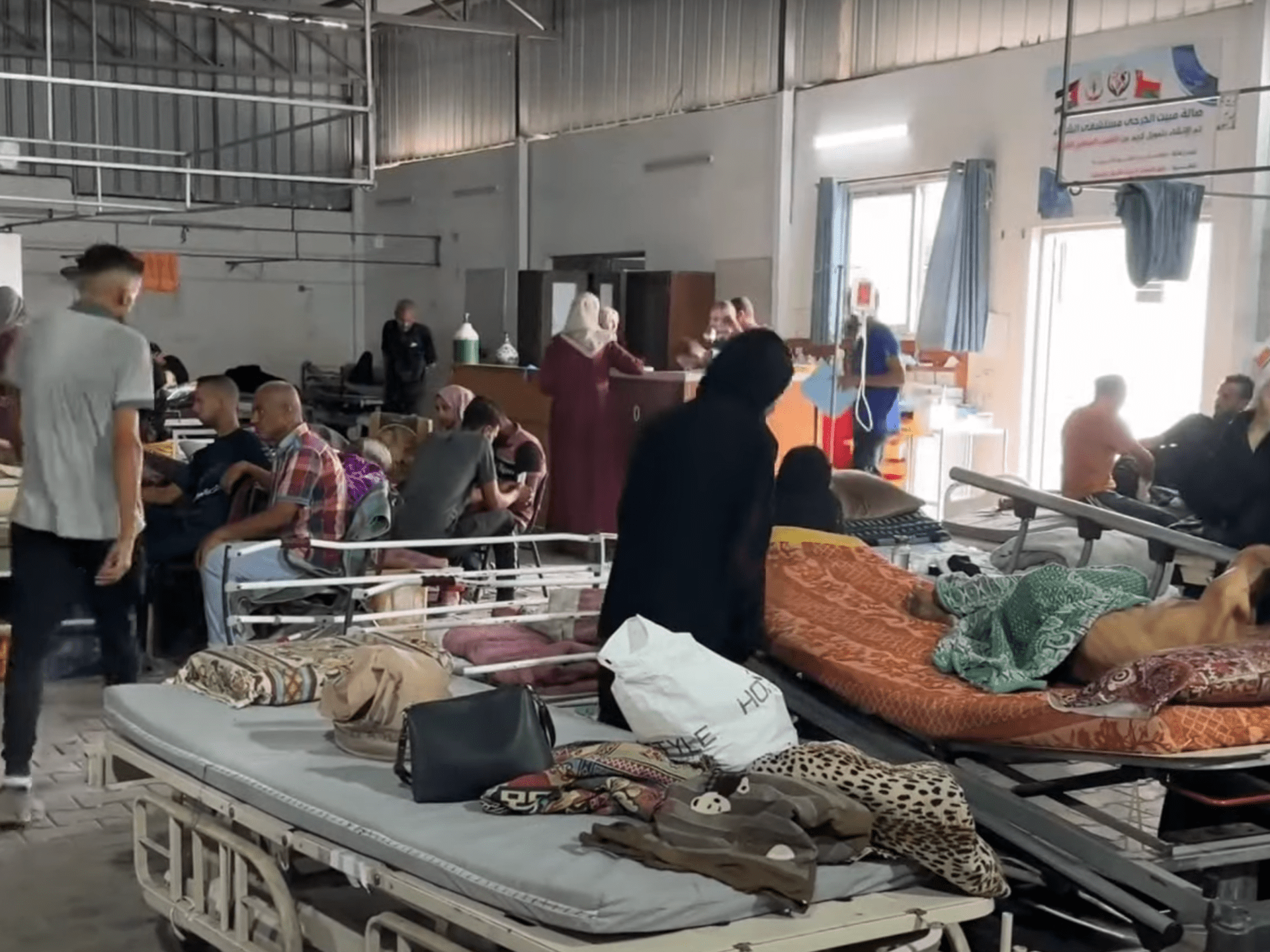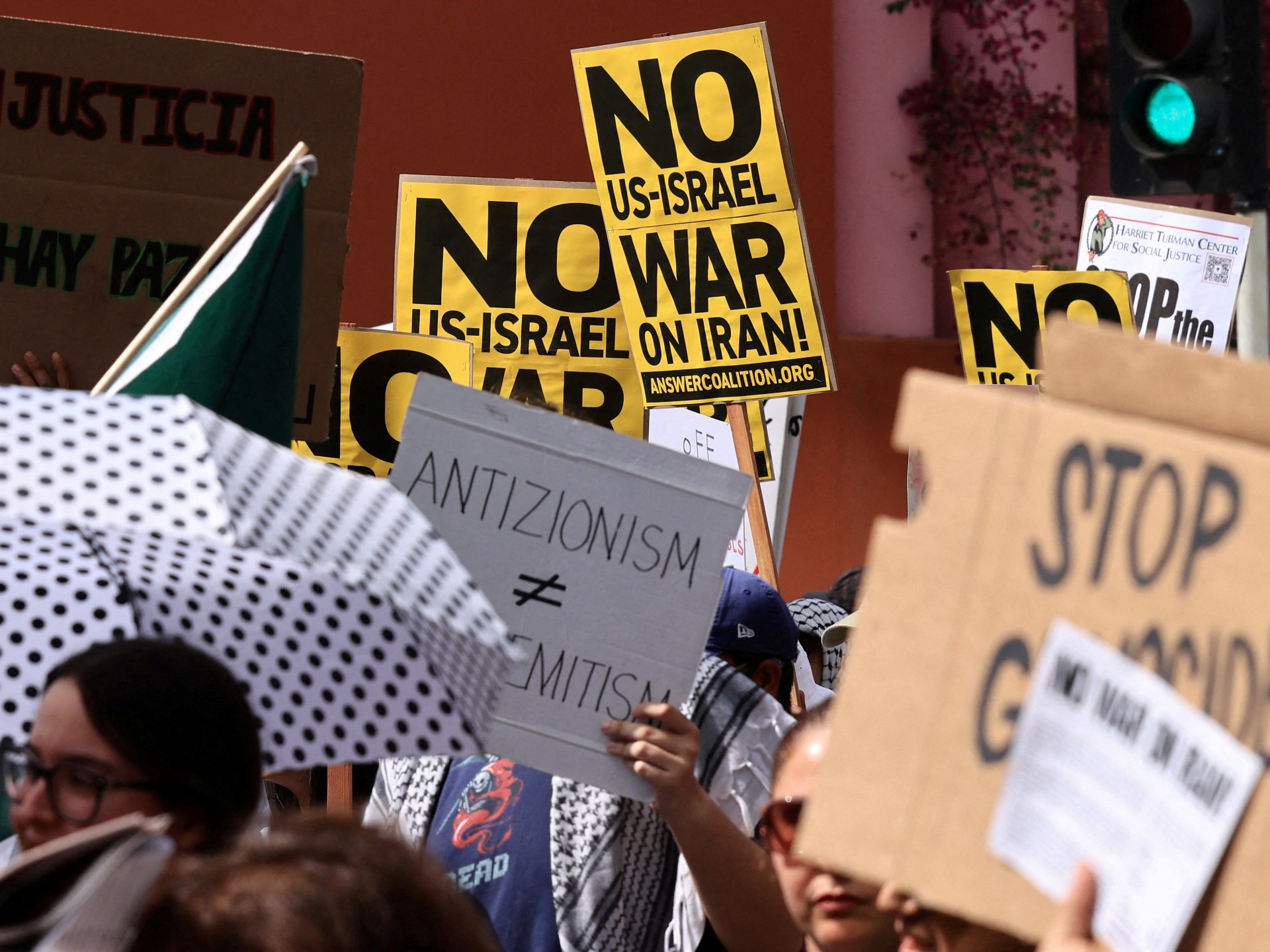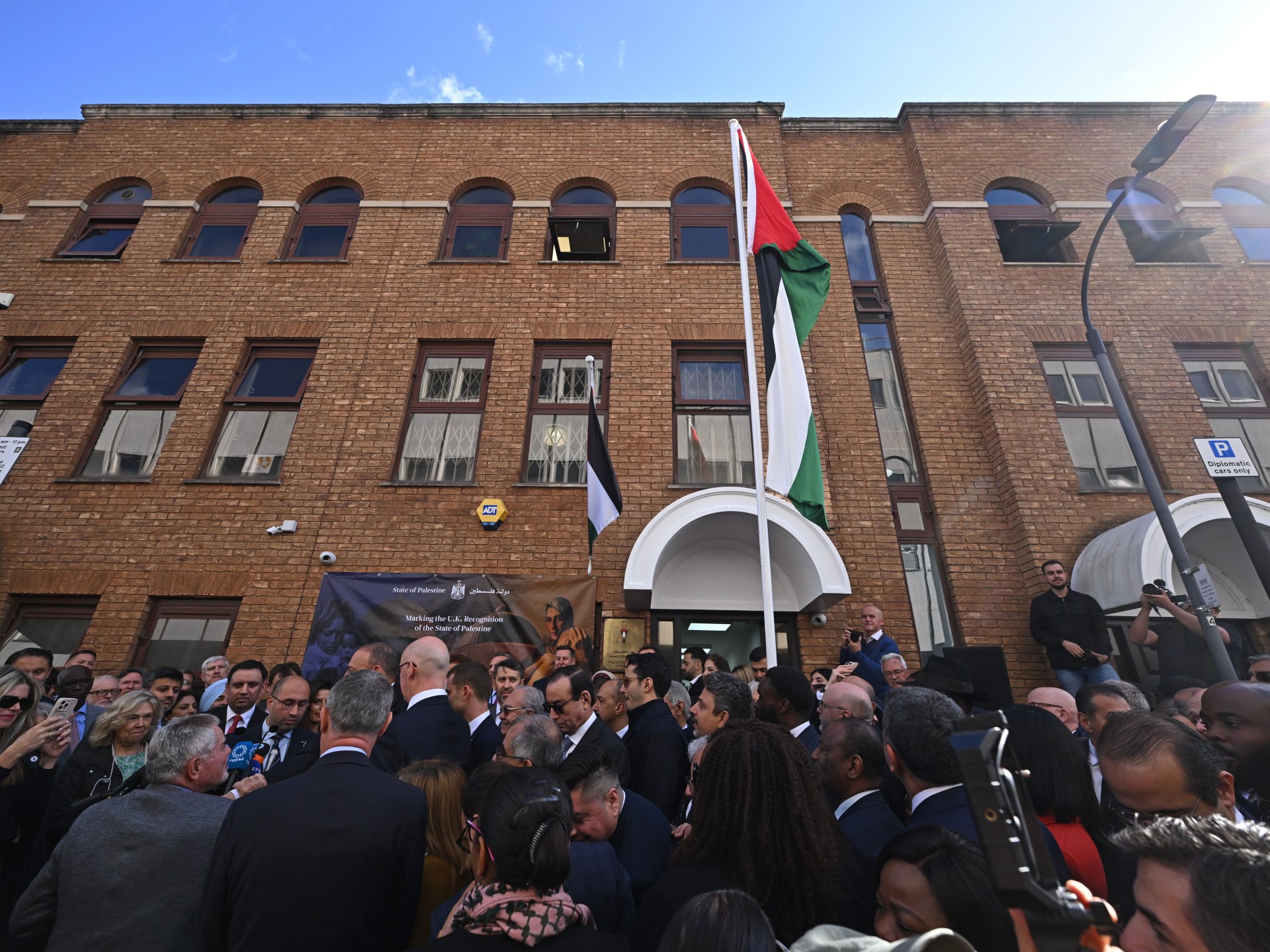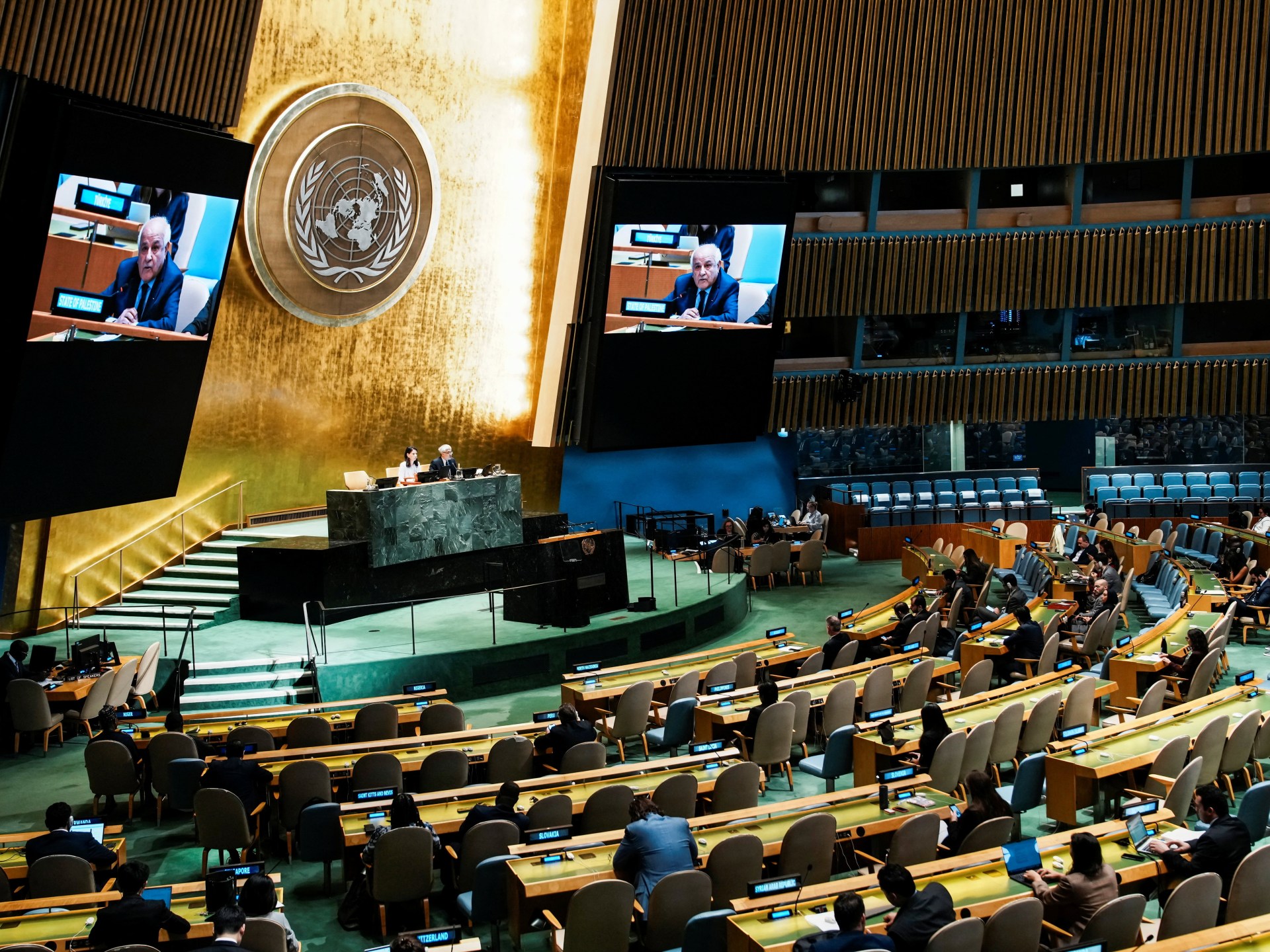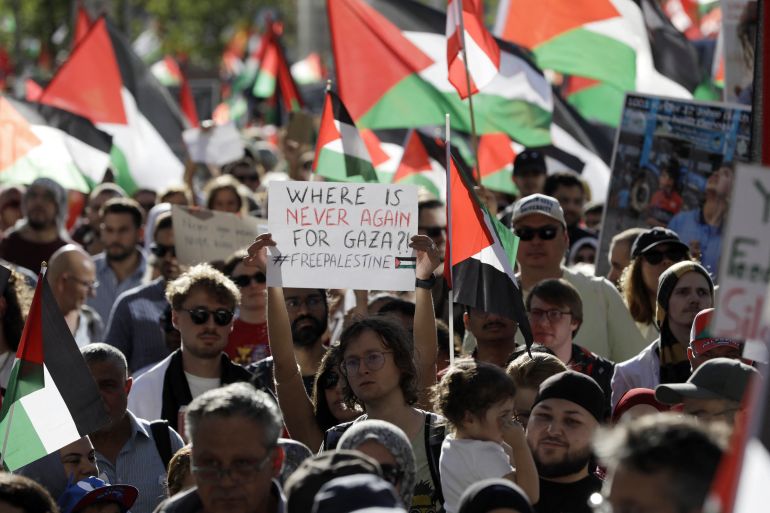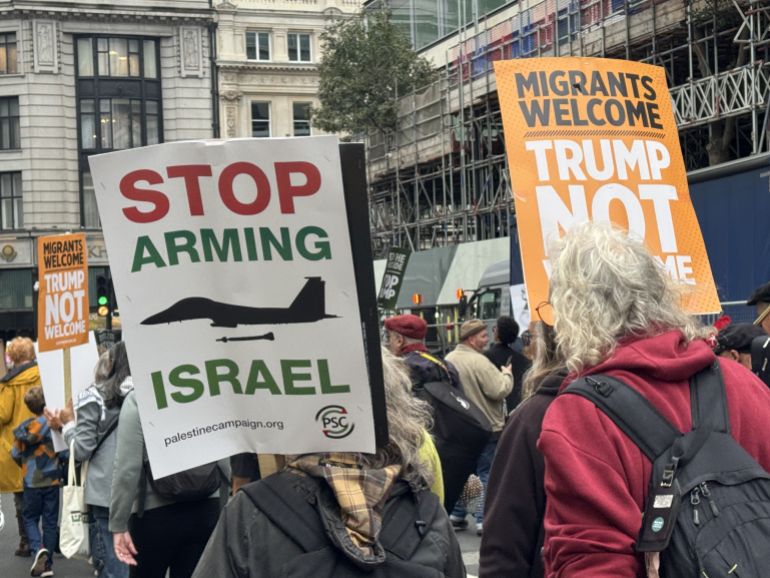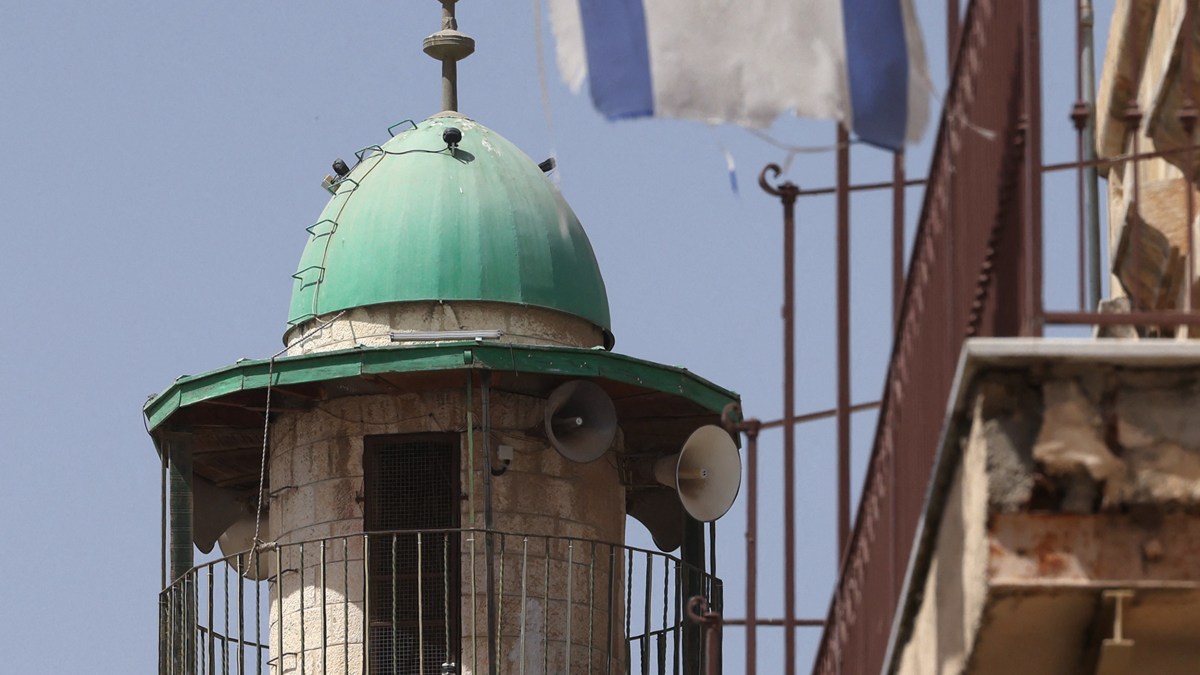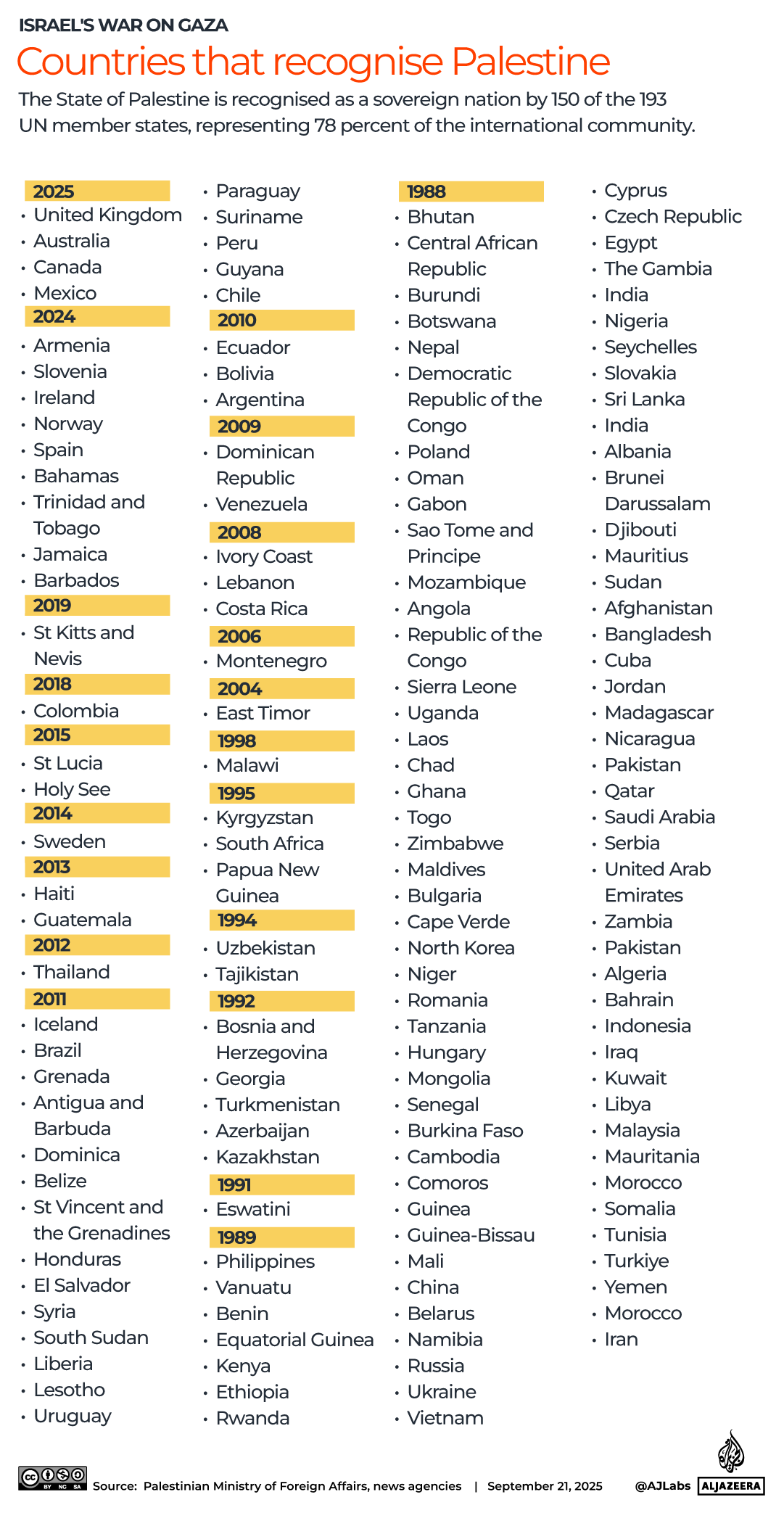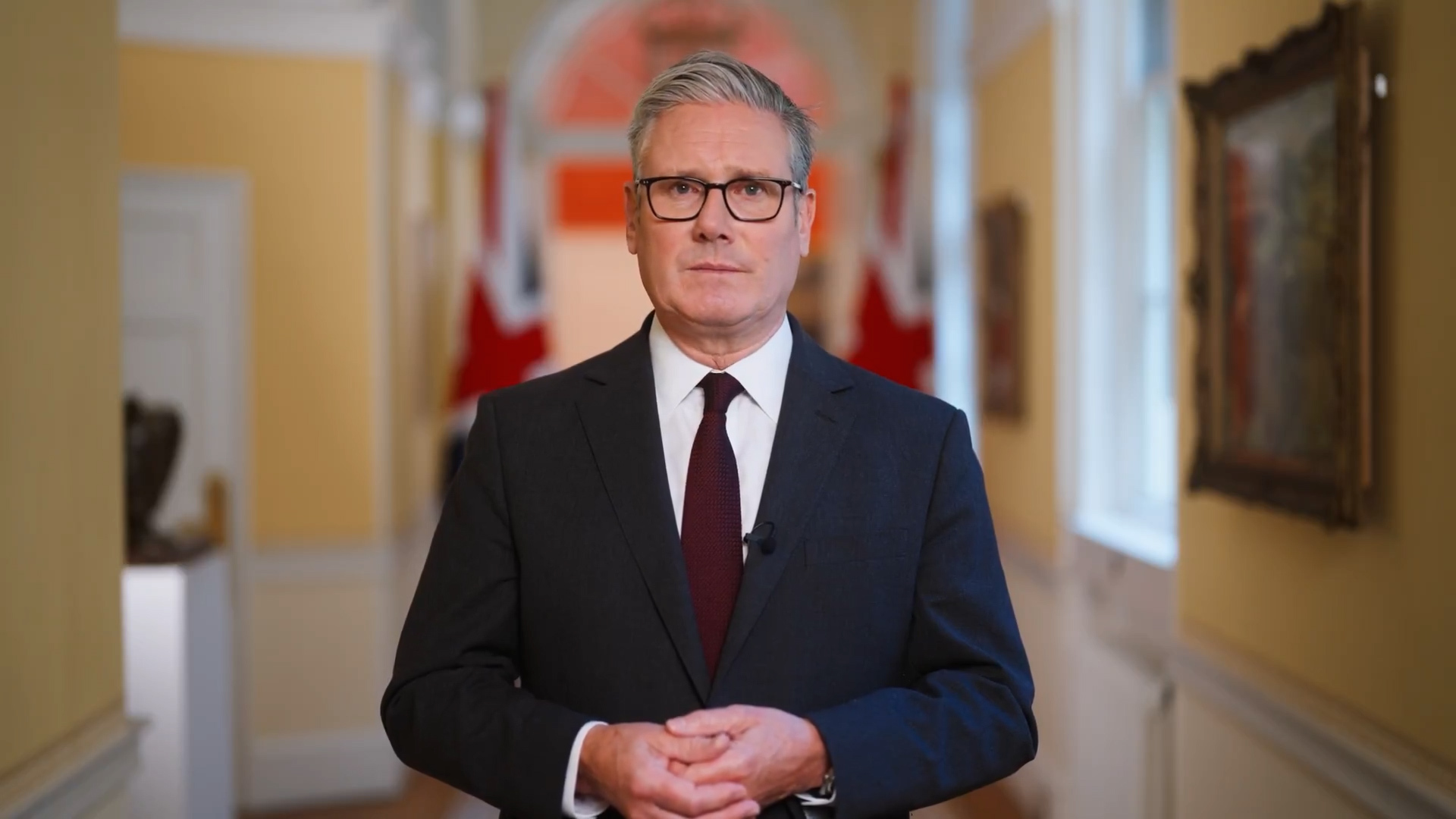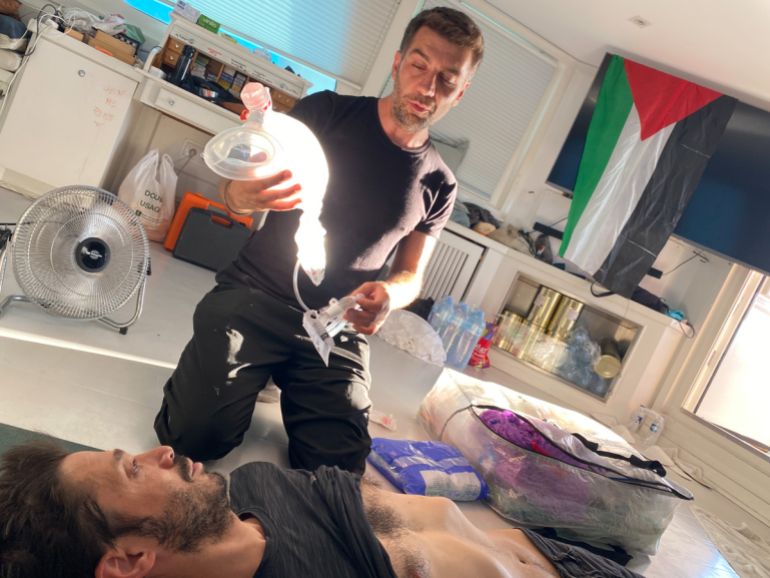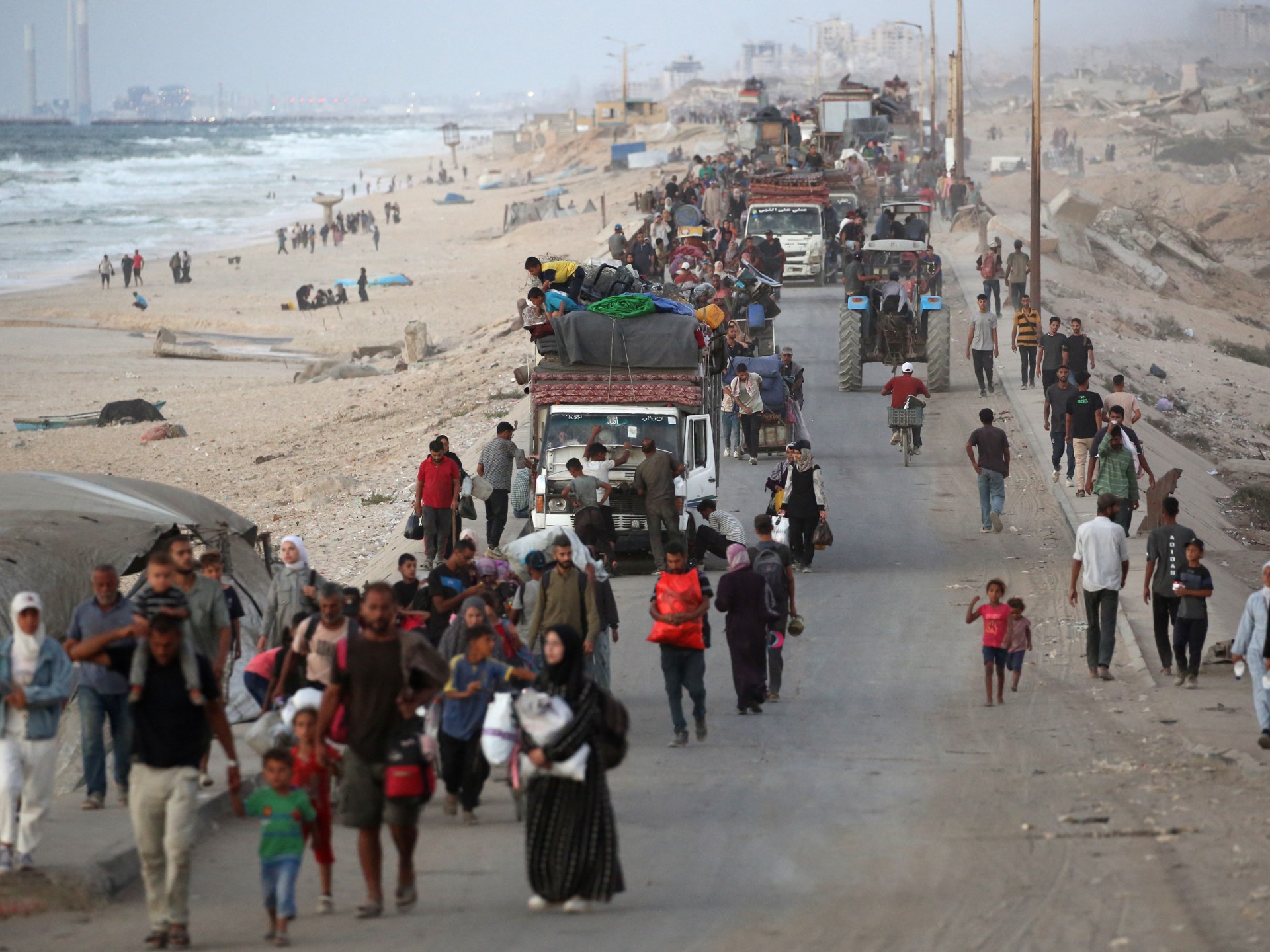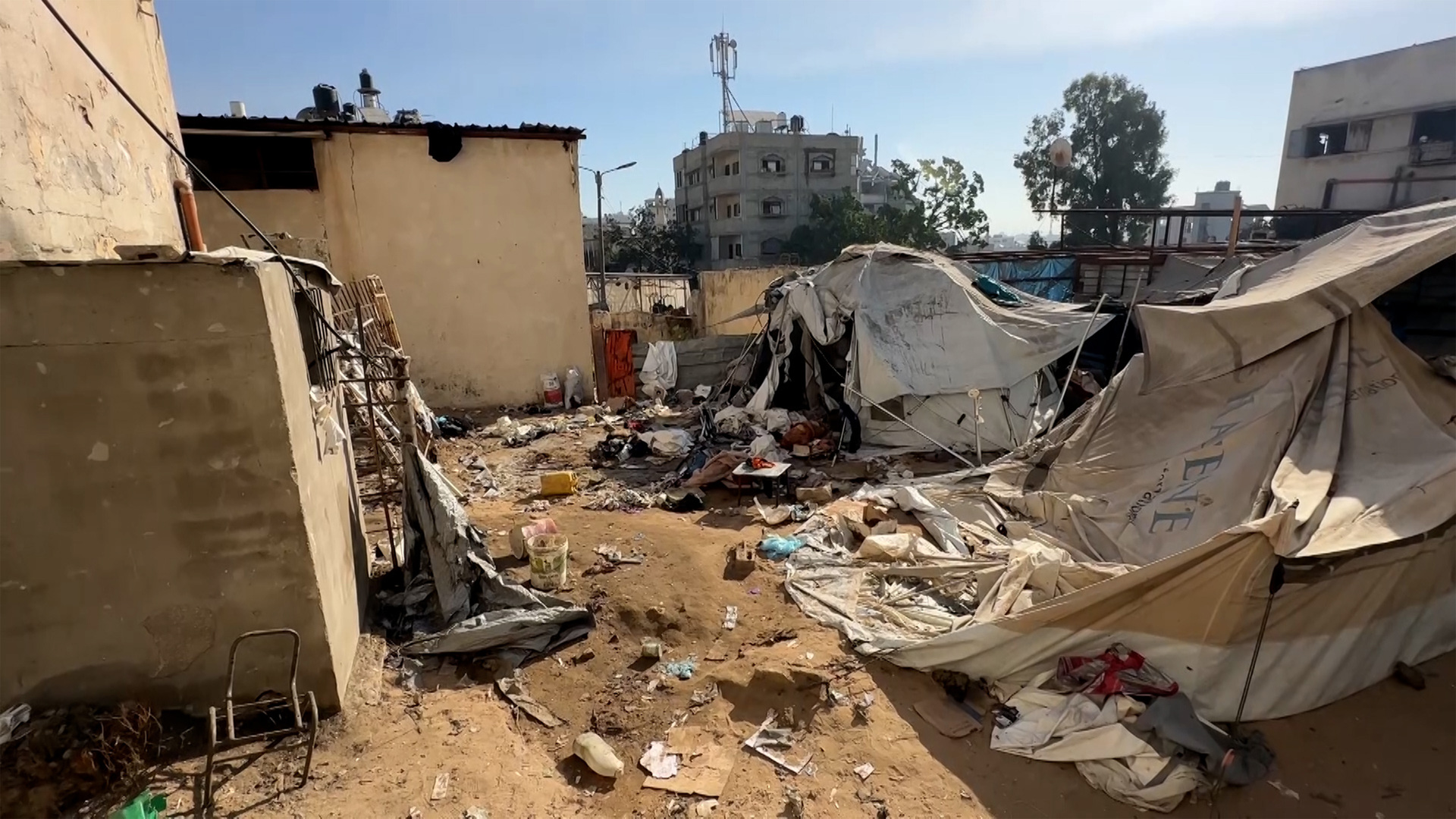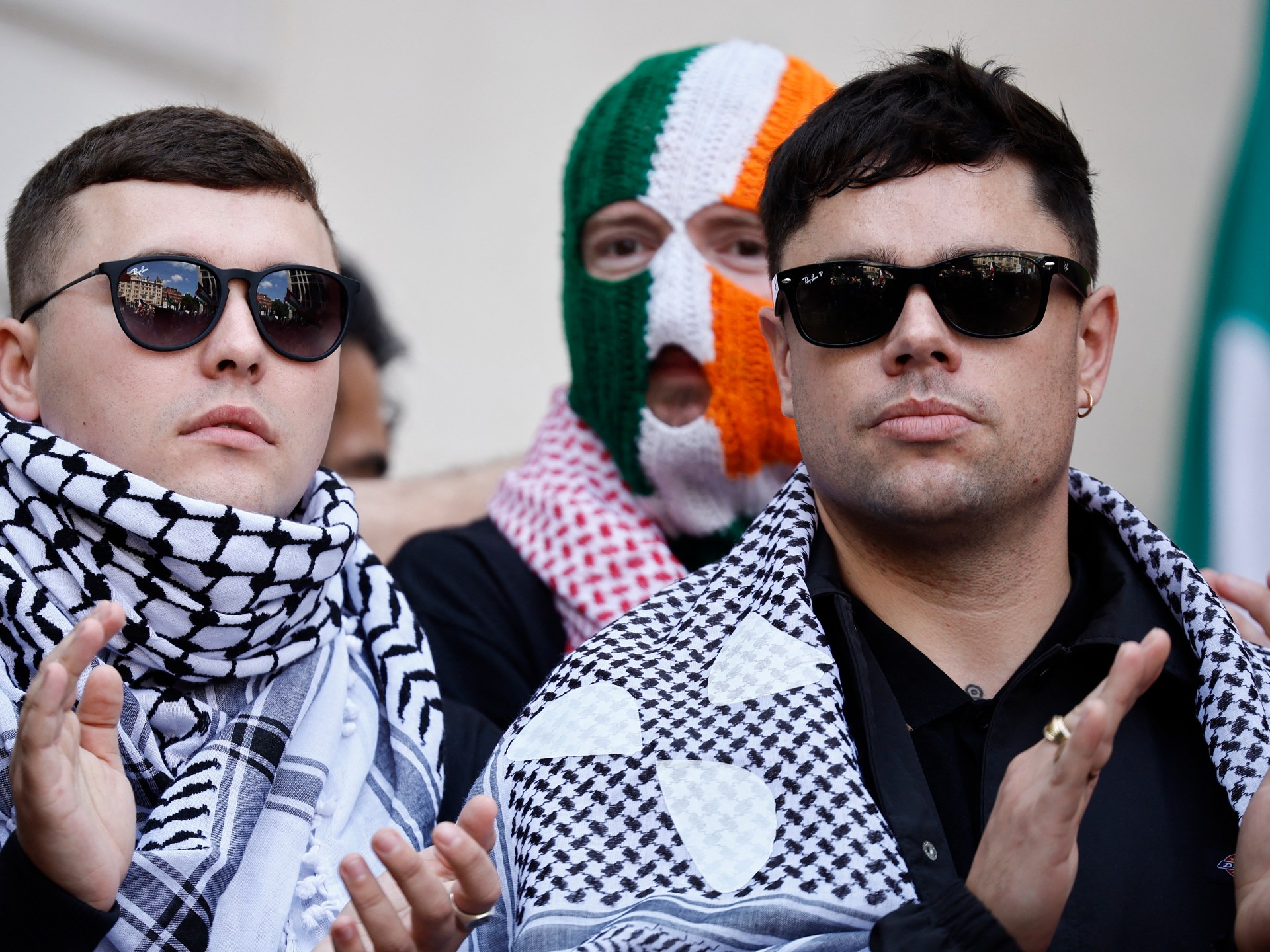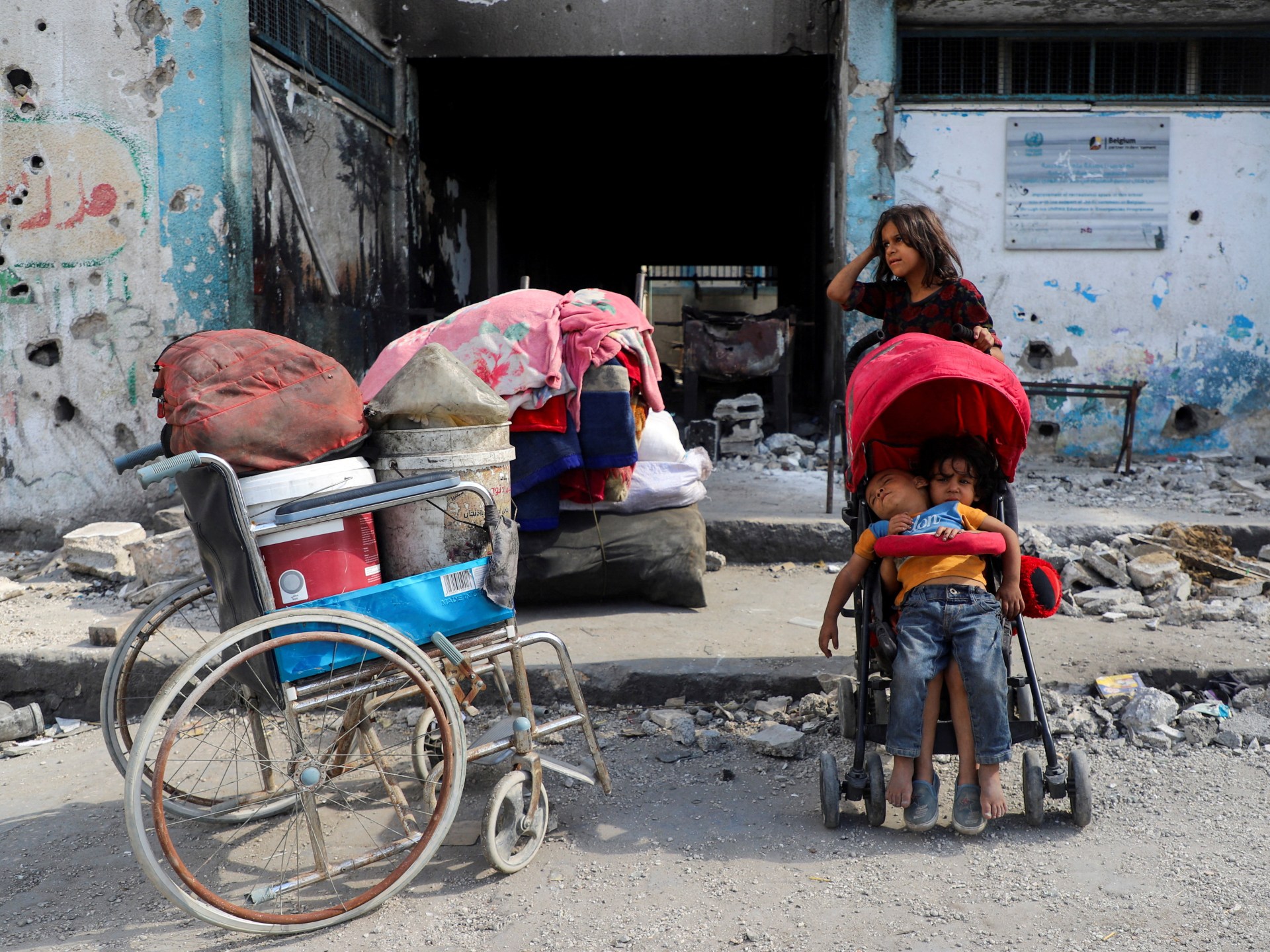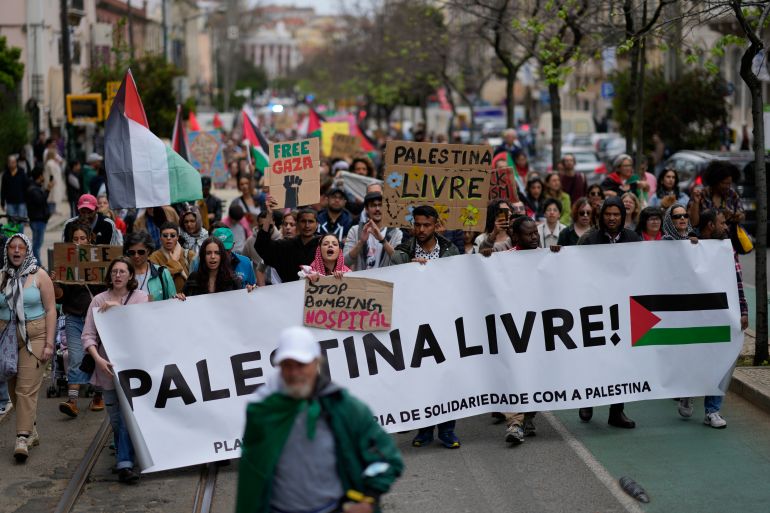West Jerusalem, Israel – Two blocks from Prime Minister Benjamin Netanyahu’s residence in West Jerusalem, where Balfour and Gaza Streets meet behind layers of steel barricades and weekly pro-hostage rallies, a tiny cornerside cafe, oddly unnamed and half-hidden, buzzed with mid-morning chatter.
As phones lit up with news that United Kingdom Prime Minister Keir Starmer had announced formal recognition of a Palestinian state, a few patrons looked up, while others shrugged.
Recommended Stories
list of 3 itemsend of list
“Of course I’m angry,” said Shira Hazan, 55, a shop owner and longtime supporter of Netanyahu’s Likud party. “But what changes? Britain doesn’t bury our soldiers. It’s just politics while Iran is shooting at us.”
A man sitting next to her, like most of those at the cafe, waved the headline off with a flick of the hand, treating it as little more than background noise.
“It’s colonial arrogance, nothing less,” he said, wearing a knitted kippah and barely looking up as be scrolled through his phone.
But the UK’s recognition of Palestine, while not a United Nations General Assembly (UNGA) vote like Israel’s in 1948, could still set off a wave. The decision marks the first time a major Western power that once held the Mandate for Palestine – given to Britain by the UN predecessor, The League of Nations, after the end of World War I to administer what is today the area that includes Gaza, the West Bank and Israel – has formally recognised Palestinian statehood.
Australia and Canada have also issued recognitions in what appeared to be a coordinated move, piling pressure on Israel and placing the three countries at odds with the United States.
The announcement comes shortly before a special summit on the war in Gaza, to be held by the UNGA on Monday. The gathering is part of a diplomatic initiative led by France and Saudi Arabia to revive the two-state solution as the only viable path to ending the decades-long conflict in the region.
Several countries, including France, Belgium, Luxembourg and Malta, have said they will join the more than 145 UN members that already recognise a Palestinian state.
Political push back
Though anticipated for some time now, the statehood declaration set off an immediate and forceful backlash, with leaders across Israel’s divided political establishment and segments of the public urging swift and sweeping retaliation.
Within hours, far-right Israeli National Security Minister Itamar Ben-Gvir said he would push for an immediate annexation of the occupied West Bank, describing the recognition as “a prize for the murderous Nukhba terrorists”, a reference to the Hamas unit that led the October 7, 2023, assault in southern Israel.
He pledged “the complete dismantling of the ‘Palestinian’ Authority” and added that he intended to “submit a proposal for the application of sovereignty at the upcoming cabinet meeting”.
The Hostages and Missing Families Forum – a group that campaigns for the safe return of captives taken to Gaza during the 2023 attack on Israel, which has camped out for more than 740 days outside Netanyahu’s home in Tel Aviv – condemned what it called “the unconditional recognition of a Palestinian state while turning a blind eye to the fact that 48 hostages remain in Hamas captivity”.
The outcry extended to the opposition. Benny Gantz, the centrist former defence minister and a leading Netanyahu rival, warned that the move would only harden Hamas’s grip and complicate efforts to free the captives held in Gaza.
“Recognising a Palestinian state after October 7 ultimately only emboldens Hamas, extends the war, distances the prospects of a hostage deal, and sends a clear message of support to Iran and its proxies,” Gantz said. In an English-language post on X directed at Western capitals, he added: “If advancing peace & stability in the Middle East is what you seek, dear Western Leaders – and not buckling to domestic political pressure, then maximum pressure must be applied to Hamas to relinquish power and return the hostages before anything else.”
One of the lone voices calling Starmer’s recognition “a step in the right direction” is left-wing Israeli parliamentarian Ofer Cassif. He told Al Jazeera that the Israeli government treats recognition as “a win-lose game”, when in reality, it could be a win for all sides.
In January 2024, Cassif signed a petition supporting South Africa’s genocide case against Israel at the International Court of Justice, prompting efforts to expel him from the Knesset on the grounds of supporting armed struggle. He was eventually suspended for six months.
“Recognition is a crucial first step toward a just peace, and all other countries that have not yet done so should follow suit,” Cassif told Al Jazeera. “But it must not become an end goal by itself. A complete arms embargo on Israel must follow, until the government of death and destruction ends the genocide in Gaza and dismantles the illegal occupation of the Palestinian territories.”
Asked about further UN actions, he said that he would “absolutely” support a peacekeeping force and reactivating anti-apartheid mechanisms used in South Africa, which included weapons and oil embargoes, among other moves.
‘The absolute worst moment’
Noam Achimeir, 29, a PhD candidate at Jerusalem’s Hebrew University who described himself as left-leaning, took issue with the timing of the Palestinian statehood announcements.
“Look, I believe in two states, I’ve marched for peace; I’ve argued with my parents about the occupation for years. But this?” Achimeir said. “This is the absolute worst moment. We’re under missile fire, families are hiding in shelters, and people are still held hostage. When countries make a grand gesture right now, it feels like rewarding the people doing that to us.”
However, he also argued that Israel cannot “control millions of Palestinians forever”.
“Maybe it’s symbolic. But symbols matter,” he told Al Jazeera. “If Britain recognises Palestine, maybe it forces us to admit this conflict won’t just vanish.”
Eliyahu Korenman, 42, a religious Zionist from the illegal settlement of Shilo north of Jerusalem who said he backed Ben-Gvir at the last election, said that London’s decision “tells Hamas, Hezbollah, Iran to keep firing rockets, holding hostages, killing Jews – and the world will reward you”.
“Every Israeli knows Palestine is just another word for surrender,” Korenman said. “If anything, the timing proves we were right all along. The only way forward is to hold on tighter, to build more, to show the world we don’t need their approval. The world doesn’t understand that.”
Yael Ben Eshel, 27, a veterinary apprentice from West Jerusalem who voted for Netanyahu’s Likud, was also dismissive.
“Honestly? Who cares? Britain hasn’t mattered here in decades. They can recognise Palestine, they can recognise the moon, it changes nothing on the ground,” she told Al Jazeera. “We don’t wake up tomorrow and give up land because of what they say.
“It’s for their politics, for the immigrants and the refugees, so forgive me if I don’t get worked up about a British speech,” Ben Eshel added, echoing Netanyahu’s comments last week on Israel’s increased international isolation, which the prime minister blamed in part on Muslim minorities in the West, rather than Israel’s killing of more than 65,000 Palestinians in Gaza.
‘Britain cannot wash its hands of history’
The announcement lands amid a tense military escalation, where the Israeli army recently deployed a third division into Gaza City as part of an operation dubbed “Gideon’s Chariots B”, expanding a months-long offensive in the enclave that has killed hundreds in an area where famine has also been declared.
It also followed a drumbeat of moves by Israel’s hard-right government aimed at forestalling Palestinian statehood. Minister of Finance Bezalel Smotrich last week unveiled a proposal to annex 82 percent of the occupied West Bank, an idea he framed as a permanent bulwark against a two-state solution.
Meanwhile, Netanyahu signed a controversial settlement expansion agreement this month, reiterating his long-held rejection of a Palestinian state and declaring that “there will be no Palestinian state; this place belongs to us”.
“Britain set the stage. First, it promised Arabs freedom if they fought the Ottomans, then, secretly carved up the region in Sykes-Picot [treaty]. It told Jews one thing in the Balfour Declaration and told Arabs another,” Achimeir said, in criticism of the UK’s policy in the aftermath of World War I.
Daniel Darby, 51, an anti-Zionist from Pardes Hanna, north of Tel Aviv, agreed, stating that London’s recognition of a Palestinian state today is “an empty, symbolic gesture that will not change a thing for the people in the occupied West Bank and for the people who are now suffering horrific genocide in Gaza”.
“The UK, which together with other European imperialistic forces is responsible for the creation of the Zionist state, is now even more fully responsible for the horrific acts taking place in occupied Palestine by supplying reconnaissance, intelligence, and all kinds of military support for Israel,” Darby said.
He added that recognition alone is meaningless without real consequences.
“The UK will not clear its past and its responsibility unless it takes action now, with a full weapons embargo and full sanctions on the state of Israel.”
This article is published in collaboration with Egab.
